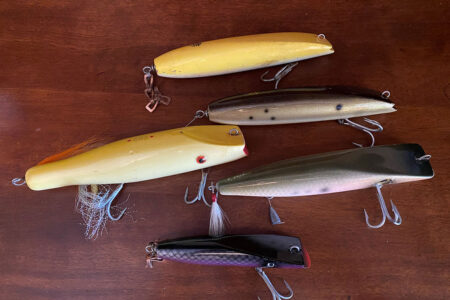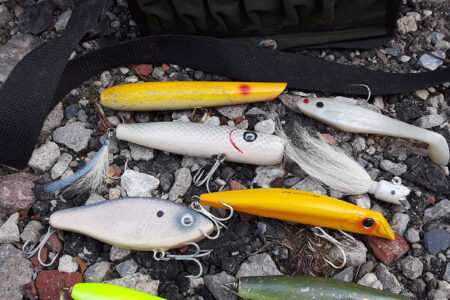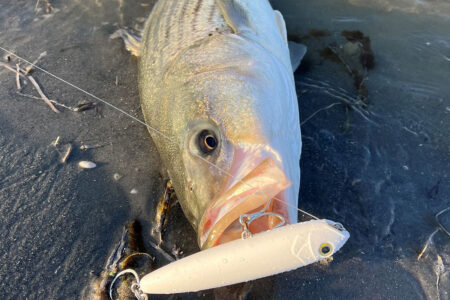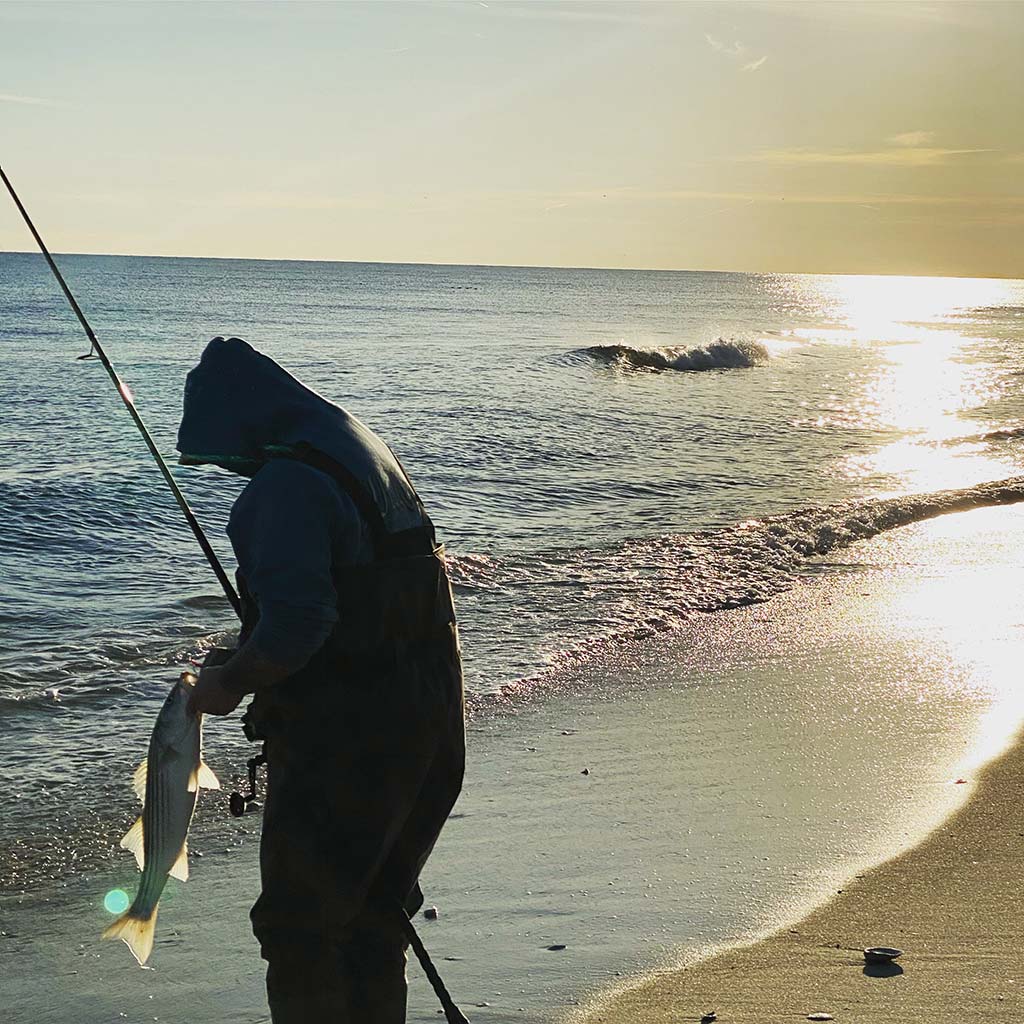
Step back and observe, you can learn a lot from other anglers.
You can learn a lot from another angler while surfcasting. Yes, speaking to another angler and having them explain a technique to you always helps. Recommendations on lures, baits, tides, and weather will be helpful too. But the type of learning I’m talking about is a little different.
Many cases have come up where I was fishing during daylight hours next to another angler, and for some reason, the individual was outfishing me tenfold. I’m not talking about a couple more, more like I have one fish, and the other caster just released his twelfth. Clearly, this fisherman was doing something I wasn’t.
Was it the lure? The line? Or maybe he was in a spot where the fish were just set up better. In many cases a simple change is the answer, and I often find myself rummaging through my bag, looking for the magic lure that will help me match the success of the other caster. Sometimes making the right change translates to instant success, but sometimes it doesn’t.
What I can recommend is stepping back and observing the other person fishing—not in a weird and creepy way either. I’m saying step back, collect your thoughts, and pay attention to how another angler works the lure. Watch where they cast, observe their body language too. This practice works exceptionally well when you’re frustrated. If you keep casting and don’t catch, your frustration will only continue to build. Take it from me on that one. If you stand back and try to learn, you will find yourself calmer, more focused and able to approach things from a different angle, leading to success most of the time. Don’t mimic them move for move—this isn’t mime surfcasting—I’ve actually tried that one too, but observing their presentation, speed and casting will really help you focus your approach.
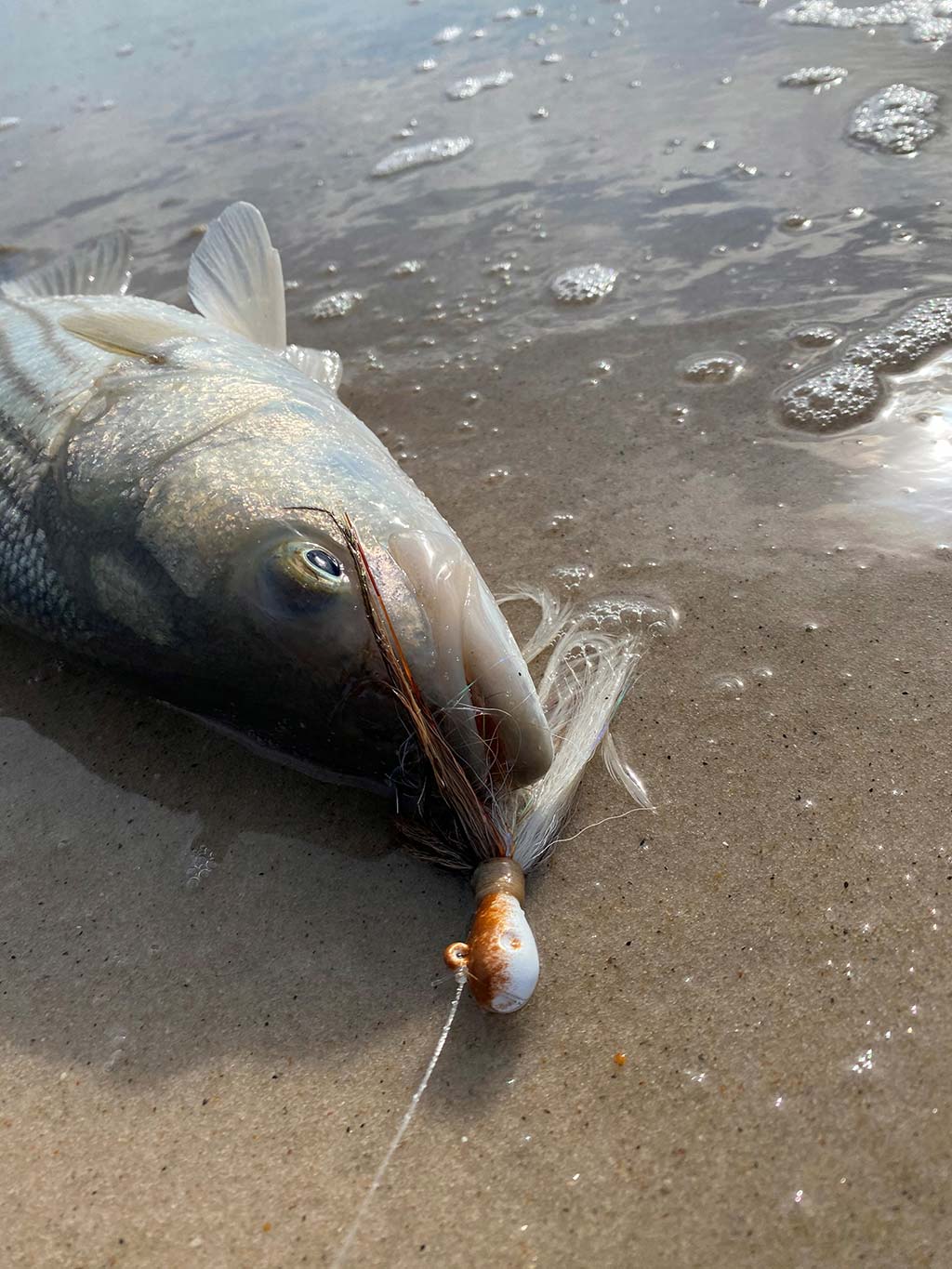
This practice came full circle for me one day on a sand beach last year. Small to medium-sized stripers could be caught by day, but they were extremely picky. Their primary forage was sand eels that had come in tight to shore. There was one caster that seemed to be having no trouble hooking up and when other fishermen would crowd him, he’d move and get right back into the fish. He was outfishing me by a 10 to 1 margin, I grew frustrated and started swapping out lures, moving around, casting at different angles, changing speeds… nothing made a difference. Meanwhile, this one guy was catching consistently the whole time.
Then it came to me—the idea to stop casting, sit on the tailgate, and just observe. By doing this, I was able to pick apart his method and find the holes in my approach. Getting frustrated by not catching didn’t help me learn anything of value. Taking some time to observe and relax opened my eyes to specific details that I could apply in my own presentation. Being calm, cool, and collected paid off. This angler was working his jig with very sharp, almost aggressive snaps of the rod tip and then following it’s descent with the reel, keeping the line just barely tight as it sank to the bottom. I went back at it. This time I had some fresh thinking in mind, and I used it to my advantage. In short order, I started to hook up at the same pace as the other angler. He looked over and gave me a nod of approval for figuring it out. That angler was none other than our late senior editor Fred Golofaro.

